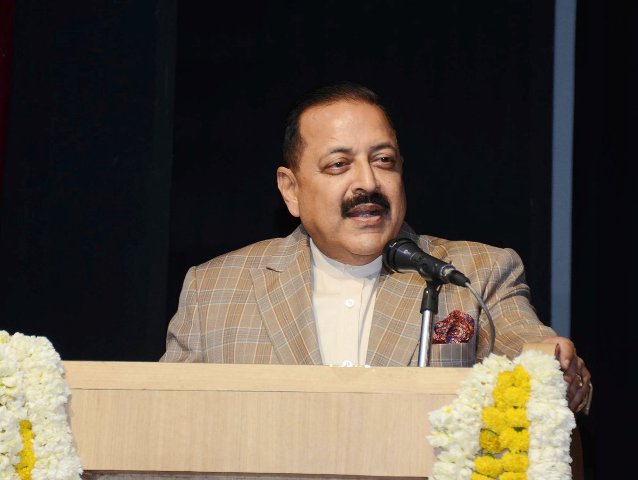Lateral recruitment of experts not to affect promotions of cadre officers: Govt

- Country:
- India
The appointments of private sector specialists in the government are being done to bring professional talents and gain through their experience, Minister of State for Personnel Jitendra Singh said Thursday, asserting that promotions of departmental officers will not be affected by it. Replying to supplementary questions in the Rajya Sabha, the minister said the recruitment has not been initiated to accommodate anybody in particular and a transparent process is being adopted.
The decision is not new and lateral recruitment of experts has been done by previous governments as well, he added. "This is something which had already persisted and with due regard to the decisions taken by the earlier governments, I think, it was done with best of the
intentions," Singh told the House. He said promotions of departmental officials would not be affected due to the recruitment of professionals as Director and Joint Secretary level officers from the private sector.
"I wish to reassure everybody that there will be no detrimental or adverse effect on the promotional prospects of those who are already in service. If you go through the chronology, you will see that we are already deficit at the level of Director and Deputy Secretary.
"There was a sudden dip, particularly between the years 1995 and 2000, because of sudden litigations, etc. So, that is why I said the augmentation of availability also is going to be our advantage. We are already short of the officers at this level and with that intention, Sir, we are now going ahead to advertise forty posts at the level of Deputy Secretary and Director," he said. Singh said the process of recruiting a total of 40 experts in various fields is underway.
"We have recently advertised for ten posts of Joint Secretary, for which we got more than 6,000 applications and only nine, out of ten vacancies have been successfully filled by the UPSC till now. You can see the high degree of scrutiny there," he said. "This is not the first time such recruitments are being done, as such experts have been recruited during previous governments too and this process is on since 1972," he said.
"Lateral entry in the Government of India has existed for decades together, and one of the most illustrious lateral entries was none less than the former Prime Minister Manmohan Singh, who was appointed the Chief Economic Advisor way back in 1972 and then the Secretary in the Finance Ministry in 1976," Singh said.
He said Montek Singh Ahluwalia was appointed as Economic Adviser in the year 1979, Vijay L Kelkar was appointed as Finance Secretary in 1998, and then he was appointed as Secretary in the Ministry of Petroleum and Natural Gas in 1994. Similarly, Bimal Jalan was appointed as Finance Secretary in the year 1991, Shankar Acharya was appointed as Chief Economic Advisor in the year 1993, Rakesh Mohan was appointed as Deputy Governor of Reserve Bank of India in the year 2002 and later he was appointed as Secretary in the Department of Economic Affairs in 2004, and then he was appointed as Chief Economic Advisor in the year 2005, he said.
"Now, this has to be further streamlined because we gain by experience and also learn to improve with the passage of time. Now the process is being conducted through the Union Public Service Commission and there the criteria and the eligibility parameters are not compromised," he told the House. The minister said since these were single cadre appointments, there was no reservation followed and there is a sound reason behind that.
If there is only one vacancy in a certain Ministry, one can make an appointment, but the principle of a reservation does not apply there and it has already been scrutinized through all means. "In the present government, the lateral entry appointments prominently have been just about six or seven at the higher level, whereas earlier it was more than 20," he said.
He claimed that the scrutiny and parameters being followed are almost the same and very strict and there is no compromise on the merit. "On the contrary, in a number of situations, we would be able to supplement with better merit available, depending on the requirements of a particular assignment or the nature of the job. Particularly, these days, we have a number of flagship programs, which require the expertise of a different order, of a different level. One such example is our flagship program, Ayushman Bharat. So, I think, it is in good faith and it is going to deliver dividends," Singh said.
(This story has not been edited by Devdiscourse staff and is auto-generated from a syndicated feed.)
ALSO READ
BJP has resolved to bring all senior citizens above 70 years of age under 'Ayushman Bharat' scheme: PM Modi.
Former China c.bank deputy governor charged with illegally accepting $53.3 mln property
Egypt committed to flexible exchange rate regime, says central bank deputy governor
Former China c.bank deputy governor charged with illegally accepting $53.3 mln property
Odisha people deprived of Ayushman Bharat; CM thinks PM Modi will become popular if it is implemented in state: Shah at poll rally.










